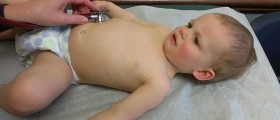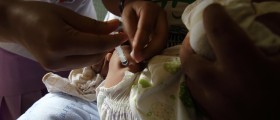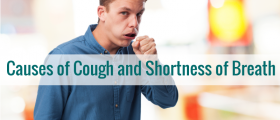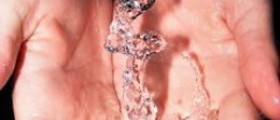
Whooping Cough Characteristics
This type of cough is quite an uncomfortable one. Namely, it is notorious by its constant annoyance. People who are coughing this way are unable to breathe until the spree is over, resulting in their gasping for air later, manifested through whooping. This cough is mostly caused by a bacteria which creates an infection in the air pathways. Since, the coughing action involved with this infection is so severe, many are wondering if it is contagious. Well, it is certainly a question worth answering. Thus, read on.
Manifestations of Whooping Cough
As it was mentioned above, the main trademark of this cough is its persistence and the whooping sound it causes once the infected person starts breathing. It usually gets worse when it advances, especially during the night. Sometimes, the coughing sprees may last for so long that the sufferer may experience a red or even purple face discoloration due to straining and the lack of air. Small children and babies present a high risk group. In their cases, whooping cough may even result in suffocation, dehydration, pneumonia, brain damage and other grim complications.
For all others, lack of strength, constant tiredness and loss of appetite often go hand-in-hand with whooping cough, even though adults cope with this illness much better than children do.
Is It Contagious Then?
Taking into consideration those bacteria is behind it, whooping cough is highly contagious and easily transferable from one person to another. Coughing makes one expel infected saliva and mucus into the air. Then, if any other person is to breathe that air, he or she is bound to get infected as well. Additionally, kissing and breastfeeding are also possible ways of getting infected. Finally, a person may be contagious during the whole time under bacterial influence, which is for 2 or 3 weeks, while the incubation period is known to last from 7, all the way to 20 days.
Means of Prevention and Possible Treatment
Quarantine is the best prevention. Thus, all who are sick are not to get in contact with other people, especially children since they might infect them as well. Moreover, vaccination is highly recommended, since there are shots given to babies, ensuring their immunity to this bacteria, reducing chances of developing whooping cough.
As for treatment, it is best to pay your doctor a visit. Then, after examining you, he or she will recommended the best possible therapy, probably involving taking some antibiotics.

















Your thoughts on this
Loading...